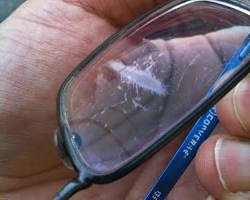Welders, Bakers And Beyond: How Your Job Can Affect Your AR Lenses
While Anti-Reflective (AR) coatings are incredibly beneficial for most people, there are indeed specific jobs or situations where issuing them might not be the best idea due to the nature of the coating itself.
The primary reasons an AR coating might not be recommended include:
Occupations Involving High Heat Exposure:
AR coatings are applied in a vacuum environment using very thin layers, and they are susceptible to damage from extreme heat.
Working Jobs With Ar Coated Lenses like:
Welders
Bakers
Chefs (especially those working near ovens/stoves for long periods)
Industrial workers around furnaces, kilns, or other high-temperature machinery
Anyone who consistently leaves their glasses in extremely hot environments
(e.g., on a car dashboard in a tropical climate like Trinidad and Tobago).
High heat can cause the coating to crack, "craze" (develop a fine network of cracks), peel, or bubble, making the lens unusable.
Occupations with High Exposure to Abrasive Materials or Harsh Chemicals:
While modern AR coatings offer some scratch resistance, they are still a delicate layer. Jobs that involve:
Working in very dusty environments with abrasive particles.
Frequent exposure to strong industrial solvents, acids, or other corrosive chemicals.
Grinding, sanding, or heavy construction work without adequate face shields.
In these scenarios, the coating might degrade or scratch very quickly, leading to customer dissatisfaction.
Patients with a History of Poor Lens Care:
If a patient consistently uses inappropriate cleaning materials (e.g., paper towels, harsh sprays, shirt sleeves) or repeatedly exposes their glasses to conditions that damage coatings, it might be more practical for them to have uncoated lenses to avoid constant frustration and replacement costs.
This is more of a practical dispensing decision based on patient habits.
Certain Specialized Safety Eyewear:
In some very specific industrial or laboratory settings, a bare, highly impact-resistant lens might be preferred where the absolute highest level of durability or chemical inertness is required for a very specific type of exposure, and the coating is seen as an unnecessary layer that could potentially fail or react.
In summary, it mostly comes down to heat and environmental harshness.
For most daily activities, AR coatings significantly improve vision and aesthetics, but for extreme conditions, they can be a liability.
For More Information On Ar Coated Lenses You Can Contact Our
Optical Partners In Port Of Spain
Brent Lezama




Comments
Post a Comment